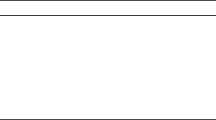Abstract
Binary decision diagrams (BDDs) are graph-theoretical, compact representation of Boolean functions, successfully applied in the domain of expert systems for practical VLSI design. The authors have been developing the methods of using BDDs for expert systems that mechanically try to prove the termination of rule-based computer programs. To make BDD representation really practical, however, we need good heuristics for ordering Boolean variables and operations. In this paper, we will present some heuristic methods that could affect the performance and evaluate them through the comprehensive experiments on sample rule-based programs taken from practical domains such as hardware diagnosis, software specification, and mathematics. The results show the big difference among the heuristics and provide us useful information for optimizing the overall systems.
This work is partially supported by the Grants-in-Aid for Scientific Research of Education Ministry of Japan: No. 09650444 for the first author and No. 09780231 and No. 11780184 for the second. The first author is also supported by the Special Grants from Hokkaido Institute of Technology.
Preview
Unable to display preview. Download preview PDF.
Similar content being viewed by others
References
Akers, S. B.: Binary decision diagrams, IEEE Trans. Comput., Vol. C-27, No. 6, pp.509–516 (1978)
Bryant, R. E.: Graph-based algorithm for boolean function manipulation, IEEE Trans. Comput., Vol. C-35, No. 5, pp.677–691 (1986)
Bundy, A.: Rewrite rules, The Computer Modelling of Mathematical Reasoning, Academic Press, pp.115–149 (1983)
Coudert, O. and Madre, J. C: Towards an interactive fault tree analyser, Proc. IASTED Int. Conf. on Reliability, Quality Control and Risk Assessment (1992)
Detlefs, D. and Forgaad, R.: A procedure for automatically proving the termination of a set of rewrite rules, Proc. of 1st Conf. on Rewriting Techniques and Applications, Springer, LNCS 202, pp.255–270 (1985)
Kondo, H. and Kurihara, M.: Termination verification system for term rewriting systems using binary decision diagram, Intern. Journal of Japanese Society for Artificial Intelligence, Vol.13, No.5, pp.822–834 (1998) (in Japanese)
Kurihara, M., Kondo, H., et al.: Using ATMS to efficiently verify the termination of rewrite rule programs, Intern. Journal of Software Engineering and Knowledge Engineering, Vol.2, No.4, pp.547–565 (1992)
Kurihara, M. and Kondo, H.: Binary decision diagrams for mechanical verification of precedence-based termination of rewrite rules, Poster Proc. of 5th Pacific Rim Int. Conf. on Artificial Intelligence, pp.7–12 (1998)
Madre, J. C. and Coudert, O.: A logically complete reasoning maintenance system based on a logical constraint solver, Proc. IJCAI, pp.294–299 (1991)
Malik, S., et al.: Logic verification using binary decision diagrams in a logic synthesis environment, Proc. IEEE Int. Conf. on Computer-Aided Design, pp.6–9 (1988)
Moore, J. S.: Introduction to the OBDD algorithm for the ATP community, Journal of Automated Reasoning, Vol.12, pp.33–45 (1994)
Plaisted, D. A.: Equational reasoning and term rewriting systems, in Gabbay, D. M. (ed.), Handbook of Logic in Artificial Intelligence and Logic Programming, pp.274–364 (1993)
Steinbach, J.: Termination of rewriting, Ph.D thesis, Univ. Kaiserslautern, Germany (1994)
Steinbach, J. and Kühler, U.: Check your ordering — termination proofs and open problems, SEKI report SR-90-25(SFB), Univ. Kaiserslautern, Germany (1990)
Author information
Authors and Affiliations
Editor information
Editors and Affiliations
Rights and permissions
Copyright information
© 1999 Springer-Verlag Berlin Heidelberg
About this paper
Cite this paper
Kurihara, M., Kondo, H. (1999). Heuristics and Experiments on BDD Representation of Boolean Functions for Expert Systems in Software Verification Domains. In: Foo, N. (eds) Advanced Topics in Artificial Intelligence. AI 1999. Lecture Notes in Computer Science(), vol 1747. Springer, Berlin, Heidelberg. https://doi.org/10.1007/3-540-46695-9_30
Download citation
DOI: https://doi.org/10.1007/3-540-46695-9_30
Publisher Name: Springer, Berlin, Heidelberg
Print ISBN: 978-3-540-66822-0
Online ISBN: 978-3-540-46695-6
eBook Packages: Springer Book Archive




